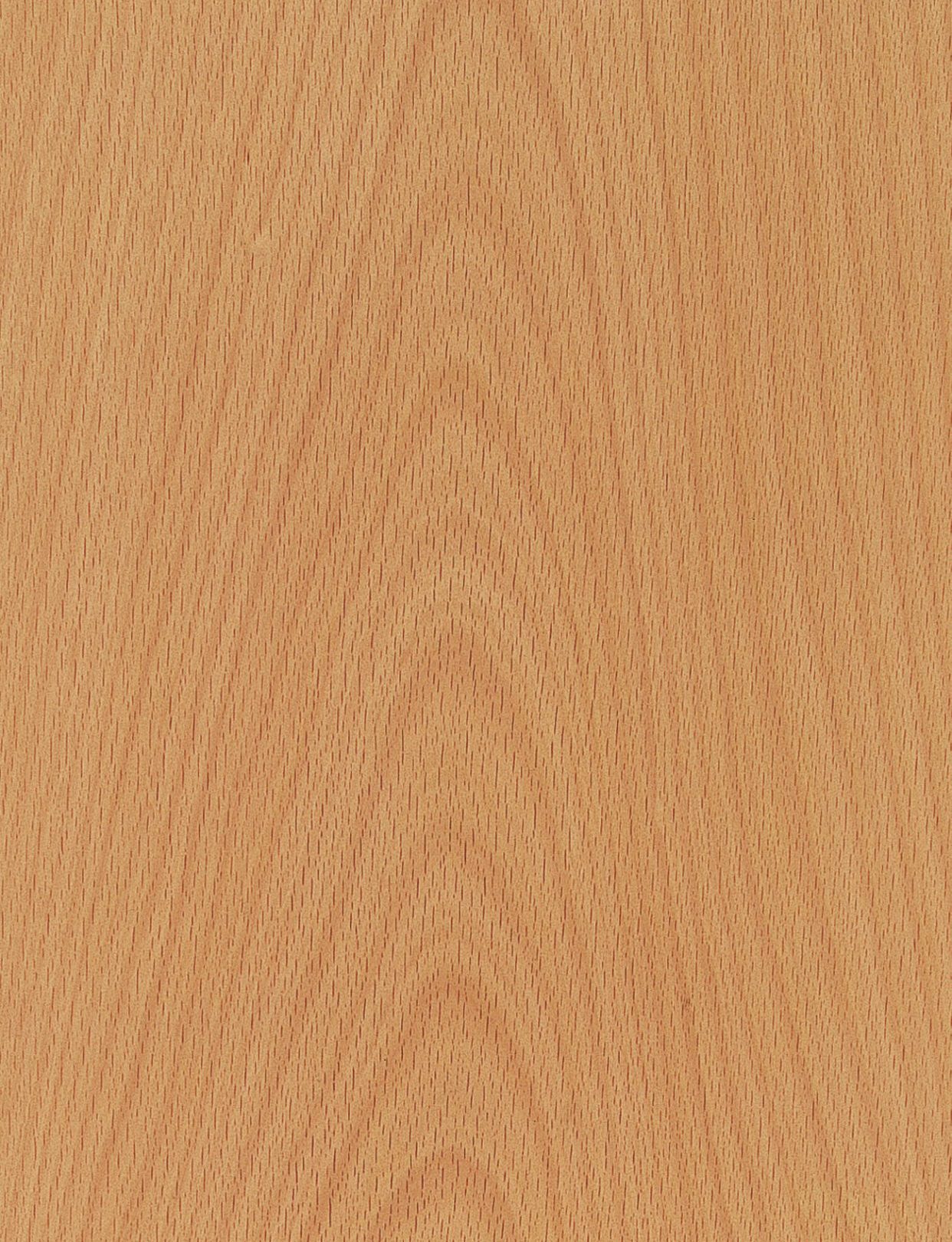
Beech
Fagus sylvatica

Trade Names
Beech
Origin
Europe
Range
Distributed all over Europe. One of the most frequent and important European species.
Uses
For veneer. Compared with other European species Beech is large in dimension (often 60 cm and more in diameter). It is also used for furniture, parquet flooring and chipboard and is excellently suited for bending (seating furniture). Beech also is well-suited for work benches as well as being good construction lumber. One of the most used woods in Europe. In the veneer form it is produced as steamed, slightly steamed or white Beech. In the middle of the nineties Beech became a remarkably fashionable wood in the veneer and solid wood sectors.
Properties
Reddish-white to reddish-brown, often with a brown heartwood when older. In some regions the Beech tends to have great tension (X, Y, T-tension) and buckles as a result of irregular annual ring formation (so-called hard years). Dark stains and mineral streaks occur frequently and reduce the value of the wood.
Machining
Working of Beech presents no difficulties either by machine or hand. It can be easily planed, turned and molded.
Seasoning
The strong tendency to check and warp can only be counter-acted by slow and careful drying. Steamed wood dries slightly faster.
Finishing
Any type of surface finish can be applied to Beech. It takes stains and lacquers very well.
Jointing
Beech takes glue very well and provides durable joints. Screw and nail joints are strong but pre-drilling is recommended.

